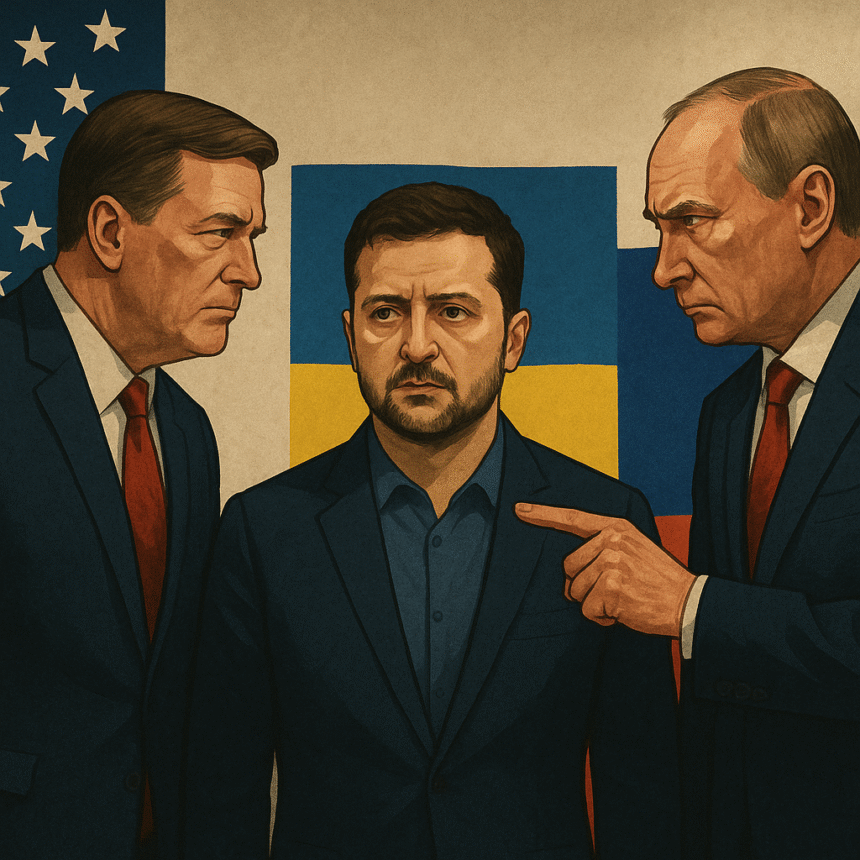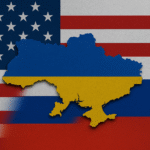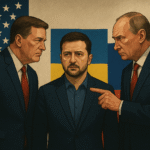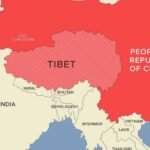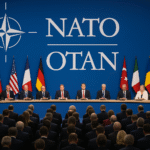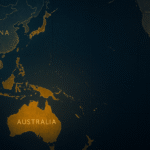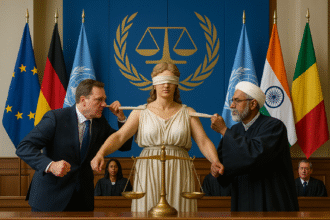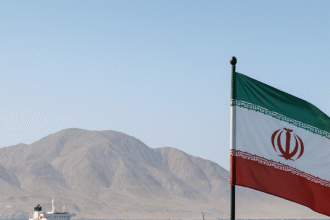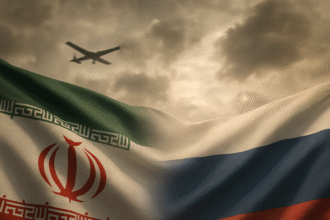Glimmer or Mirage? Ukraine’s Place in the Summit
As U.S. President Donald Trump and Russian President Vladimir Putin prepare to meet in Alaska on August 15, a critical diplomatic fault line has emerged: Will Ukraine be included at the table—or sidelined entirely?
Over the weekend, Ukrainian President Volodymyr Zelenskyy secured a fresh wave of EU and NATO backing for Kyiv’s demand to be physically present at the summit. Germany’s Chancellor Friedrich Merz signalled hope that Zelenskyy will participate.
The White House has expressed cautious openness to a trilateral format, yet there’s no official confirmation, and the main stage remains bilateral. That framing worries both Kyiv and European capitals: any agreement reached without Ukraine could erode its sovereignty, codify territorial losses, and fracture Western unity.
The Stakes: Sovereignty versus Diplomacy by Proxy
European leaders across France, Italy, Poland, the UK, Finland, and the European Commission have issued a joint rallying cry: “No decisions on Ukraine without Ukraine.” They insist any settlement must preserve Kyiv’s territorial integrity and include meaningful pause mechanisms—like ceasefires—preceding political negotiations.
Yet tensions are mounting as U.S. Vice President JD Vance publicly declared that only Trump can decide when Ukraine joins the dialogue, underscoring U.S. executive dominance over strategic timing.
Russia’s Hard Line, Ukraine’s Firm Counter
Moscow remains steadfast in its demands: formal recognition of annexed regions, Ukraine’s neutrality, military caps, and reduced Western ties—all in exchange for a ceasefire. Ukraine counters with zero territorial concession, a firm ceasefire demand, NATO aspirations, and international guarantees.
This diplomatic deadlock raises the spectre of a frozen conflict, where “peace” is imposed—not earned—and sovereignty is preserved only on paper.
Northern Allies Voice Solidarity
Adding pressure on Moscow and Washington, Nordic-Baltic leaders—from Denmark to Norway to Finland—reaffirmed the inviolability of international borders and committed to sustaining European sanctions and support for Ukraine.
Strategic Implications
| Factor | Analysis |
|---|---|
| Diplomatic legitimacy | Excluding Ukraine risks delegitimizing any peace outcome and emboldening revisionist tactics. |
| Alliance cohesion | A summit decision without Ukrainian presence could fracture NATO and European unity. |
| Geopolitical optics | Europe’s rebuke elevates its foreign policy posture, but risks sidelining its influence if U.S. leads without consultation. |
| Security guarantees | Without Ukraine’s involvement, security mechanisms lack local buy-in and enforcement clarity. |
ONN World View:
The Alaska summit may offer the illusion of peace—but without Ukraine at the table, it risks becoming mere theater. Europe’s insistence on Ukrainian inclusion isn’t just moral—it’s indispensable strategic prudence. If Washington circumscribes the conversation, it may not just undercut an ally—it could compromise any lasting resolution.

